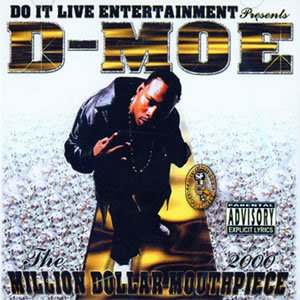
He made fifteen guest appearances on NBC-TV's The Perry Como Show between 19. During this time, he also appeared as a panelist and mystery guest on CBS-TV's What's My Line? and filled in as emcee for the game show Treasure Hunt. According to the board game Trivial Pursuit, Hackett has the distinction of making the most guest appearances in the history of The Tonight Show Starring Johnny Carson. Hackett was a frequent guest on both the Jack Paar and the Johnny Carson versions of The Tonight Show. Hackett became known to a wider audience when he appeared on television in the 1950s and '60s as a frequent guest on variety talk shows hosted by Jack Paar and Arthur Godfrey, telling brash, often off-color jokes, and mugging at the camera. Universal-International salvaged the project by hiring Hugh O'Brian and Hackett to take over the Abbott and Costello roles with Jones and his band becoming the main attraction. Several scenes had been shot with stunt doubles when Lou Costello was forced to withdraw due to illness. Abbott and Costello were set to make a feature-length comedy Fireman, Save My Child, featuring Spike Jones and His City Slickers.

Hackett was an emergency replacement for the similarly built Lou Costello in 1954.

No orda for her, juss orda for you!" The routine was such a hit that Hackett made a recording of it, and was hired to reprise it in the Universal-International musical Walking My Baby Back Home (1953), in which he was third-billed under Donald O'Connor and Janet Leigh. With a rubber band around his head to slant his eyes, Hackett's "The Chinese Waiter" lampooned the heavy dialect, frustration, and communication problems encountered by a busy waiter in a Chinese restaurant: "No, we no have sprit-pea soup. Hackett would not return to movies until 1953, after one of his nightclub routines attracted attention. This rumor was later dismissed as either untrue or unfounded. It was said Hackett even joined Moe Howard and Larry Fine for a rehearsal, but turned down the offer eventually when he felt he did not fit with the act's comedy style and wanted to develop his own style as a solo act. Curly Howard had suffered a debilitating stroke in 1946 his older brother Shemp Howard was intended to replace him only on a temporary basis until he fully recovered, but Curly died in January 1952. There was an anecdote that, because of this appearance, Hackett received an offer to join the Three Stooges from Jules White, the head of Columbia short subject department, in 1952. The film demonstrated championship bowling techniques, with expert Joe Wilman demonstrating the right way and Hackett (in pantomime) exemplifying the wrong way.
D MOE HECTA MOVIE
Hackett's movie career began in 1950 with a 10-minute "World of Sports" reel for Columbia Pictures called King of the Pins. He acted on Broadway, in Lunatics and Lovers, where Max Liebman saw him and put him in two television specials. He made appearances in Los Angeles and Las Vegas, and continued to perform in the Catskills. It was here that he changed his name from Leonard Hacker to Buddy Hackett. Hackett's first job after the war was at the Pink Elephant, a Brooklyn club. Following his graduation from high school in 1942, Hackett enlisted in the United States Army and served during World War II for three years in an anti-aircraft battery. He appeared first at the Golden Hotel in Hurleyville, New York, claiming later he did not get one single laugh. While there, he began performing stand-up comedy in the resort nightclubs as "Butch Hacker". While still a student, Hackett worked as a "tummler" ( Yiddish for "tumult maker") entertaining guests in the Catskills Borscht Belt resorts. Hackett suffered from Bell's palsy as a child, the lingering effects of which contributed to his distinctive slurred speech and facial expression. Hackett grew up across from Public School 103 on 54th Street and 14th Avenue in Borough Park, Brooklyn, and was active in varsity football and drama club at New Utrecht High School.


His mother Anna (née Geller) worked in the garment trades while his father Philip Hacker was a furniture upholsterer and part-time inventor. Hackett was one of two children born into a Jewish family living in Brooklyn, New York. His best remembered roles include Marcellus Washburn in The Music Man (1962), Benjy Benjamin in It's a Mad, Mad, Mad, Mad World (1963), Tennessee Steinmetz in The Love Bug (1968), and the voice of Scuttle in The Little Mermaid (1989). Buddy Hackett (born Leonard Hacker Aug– June 30, 2003) was an American actor, comedian and singer.


 0 kommentar(er)
0 kommentar(er)
